Several weeks ago, the NAA posed a question to the community:
Which term do you prefer—caregiver or care partner?
On one hand, the term “caregiver” makes sense: It’s a person who gives care. It’s a familiar term, deeply rooted in our vocabulary. Caregivers can be people who assist others or they can be spouses or partners, children, parents, friends, or family members who step in and give aid when someone is in need, including giving care after a diagnosis of aphasia.
On the other hand, the term “care partner” connotes the partnership that exists between the person who needs help and the person who gives it. While not as familiar as “caregiver” and bringing with it other considerations including confusion because the term “partner” generally means a peer-to-peer relationship—business partners or relationship partners—the term is also accurate: people are partners in care.
We asked you what you thought, and this is what you said.
The Community as a Whole
First, we looked at the results as a whole community (people with aphasia, caregivers/care partners, and professionals who work with people who have aphasia).
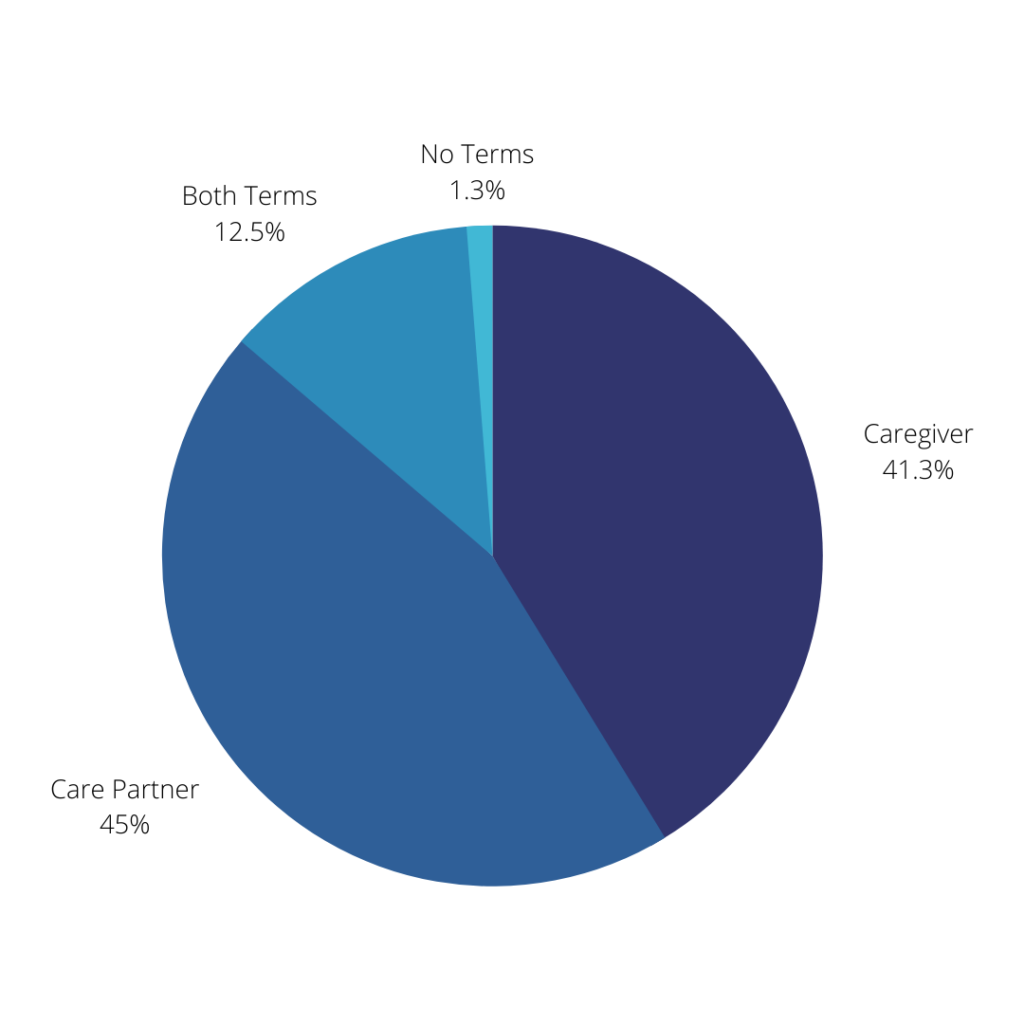
Care partner (45%) was slightly more popular than caregiver (41.3%). Many people liked both terms (12.5%) and a few people did not like either term (1.3%).
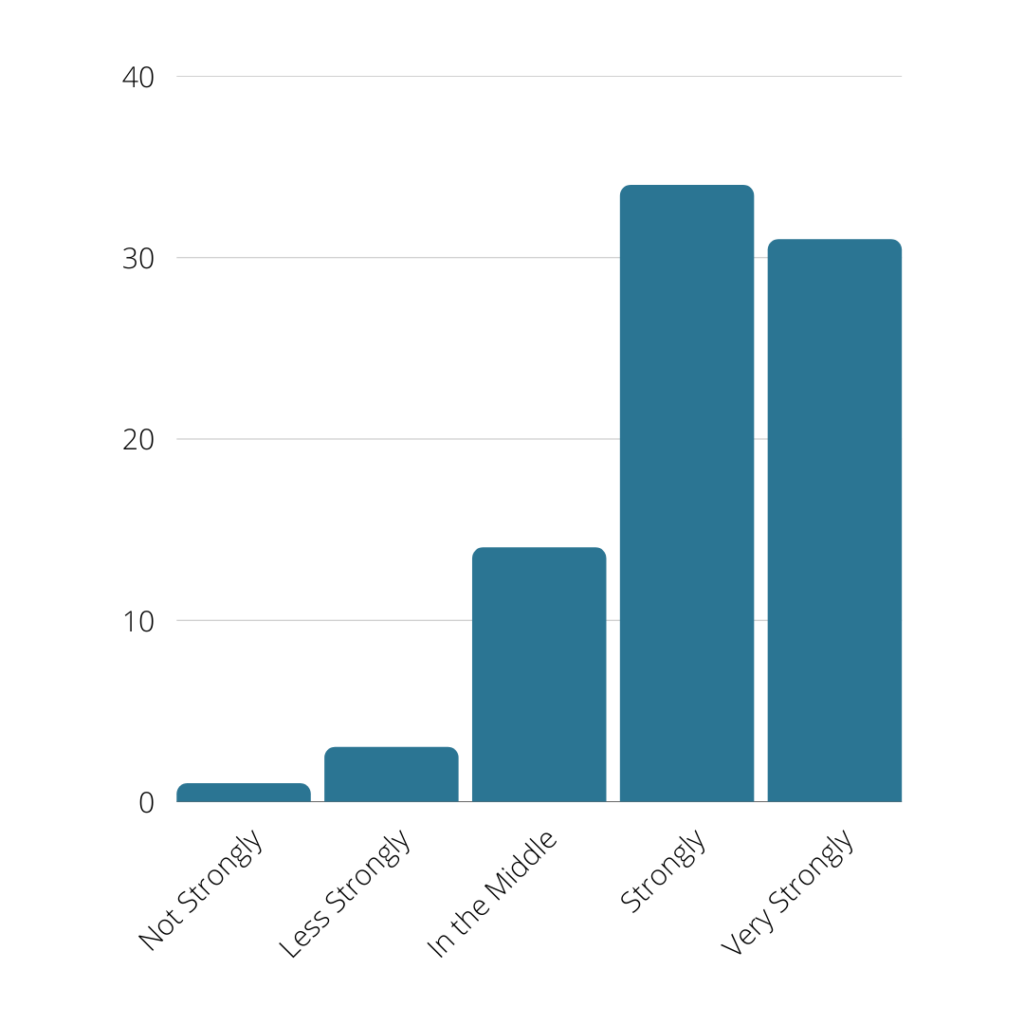
When we asked how strongly you felt about your answer, the community felt strongly (4) to very strongly (5).
But when we broke down the answers by how the person experiences or relates to aphasia, we saw very different answers emerge.
Caregivers/Care Partners
At the center are the people owning the term: the people who give the care.
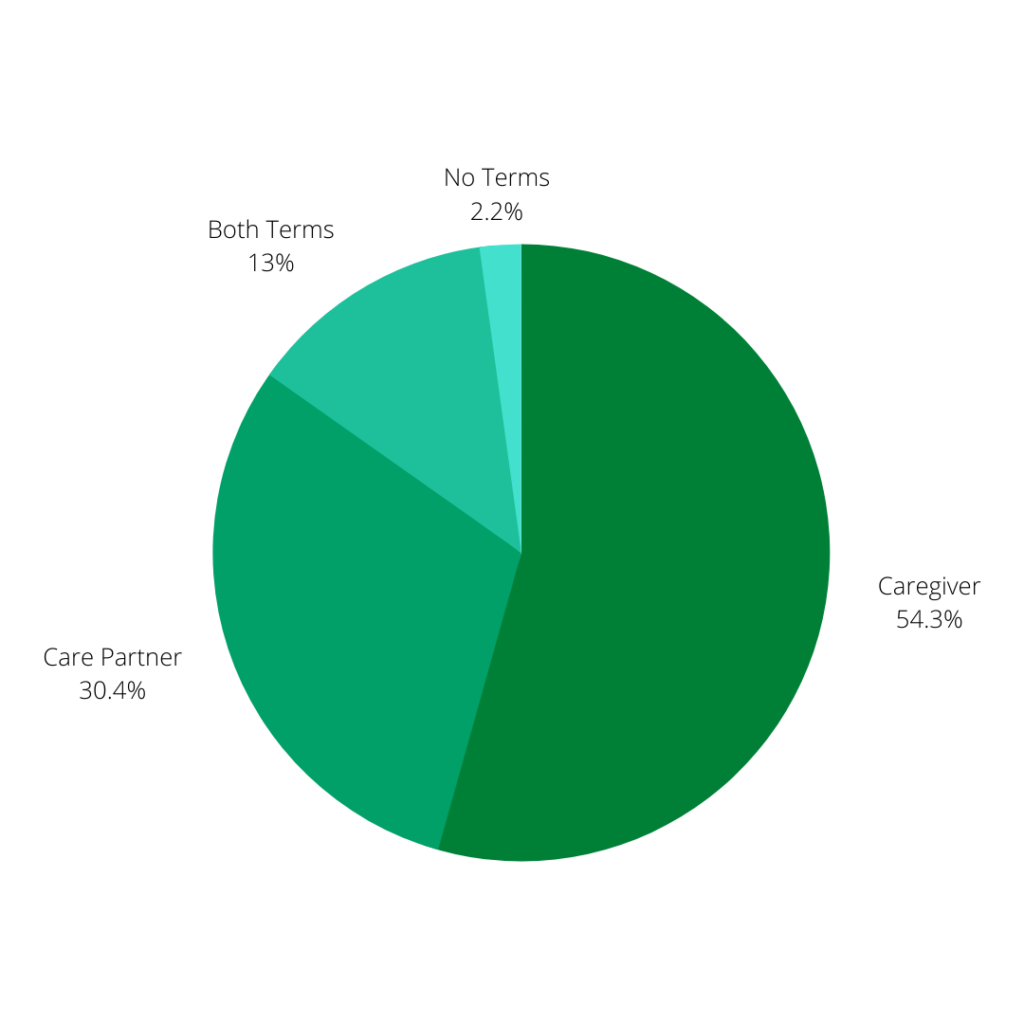
Here, caregiver (54.3%) was the favored term over care partner (30.4%). In comparison to the larger group, an almost equal amount of caregiver/care partners felt that both terms worked: 13% of caregivers/care partners vs. 12.5% of the general group. And slightly more people disliked both terms, preferring the term “helper” or simply “wife” instead.
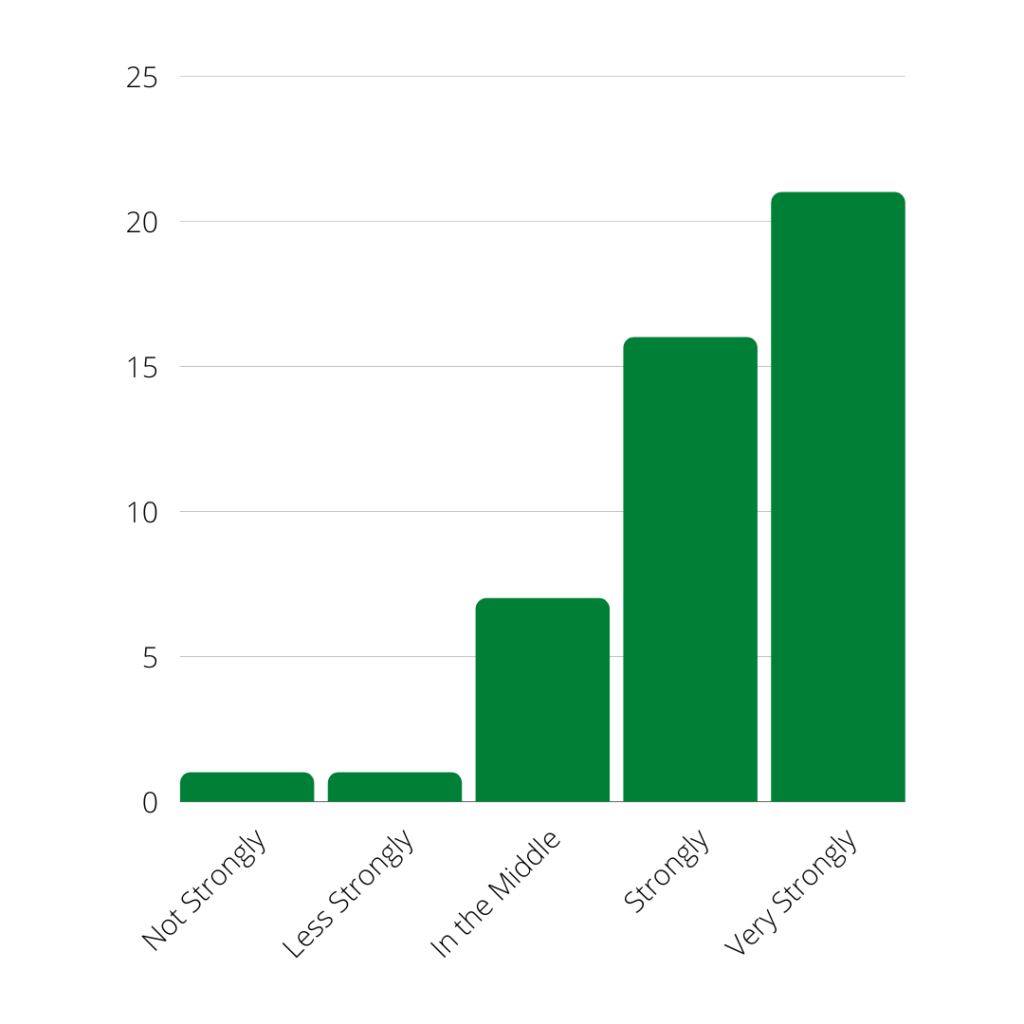
Moreover, the group felt very strongly (as opposed to the general group’s majority of strongly) about their opinion.
People with Aphasia
Next are the people being cared for, who may simultaneously also give care: people with aphasia.
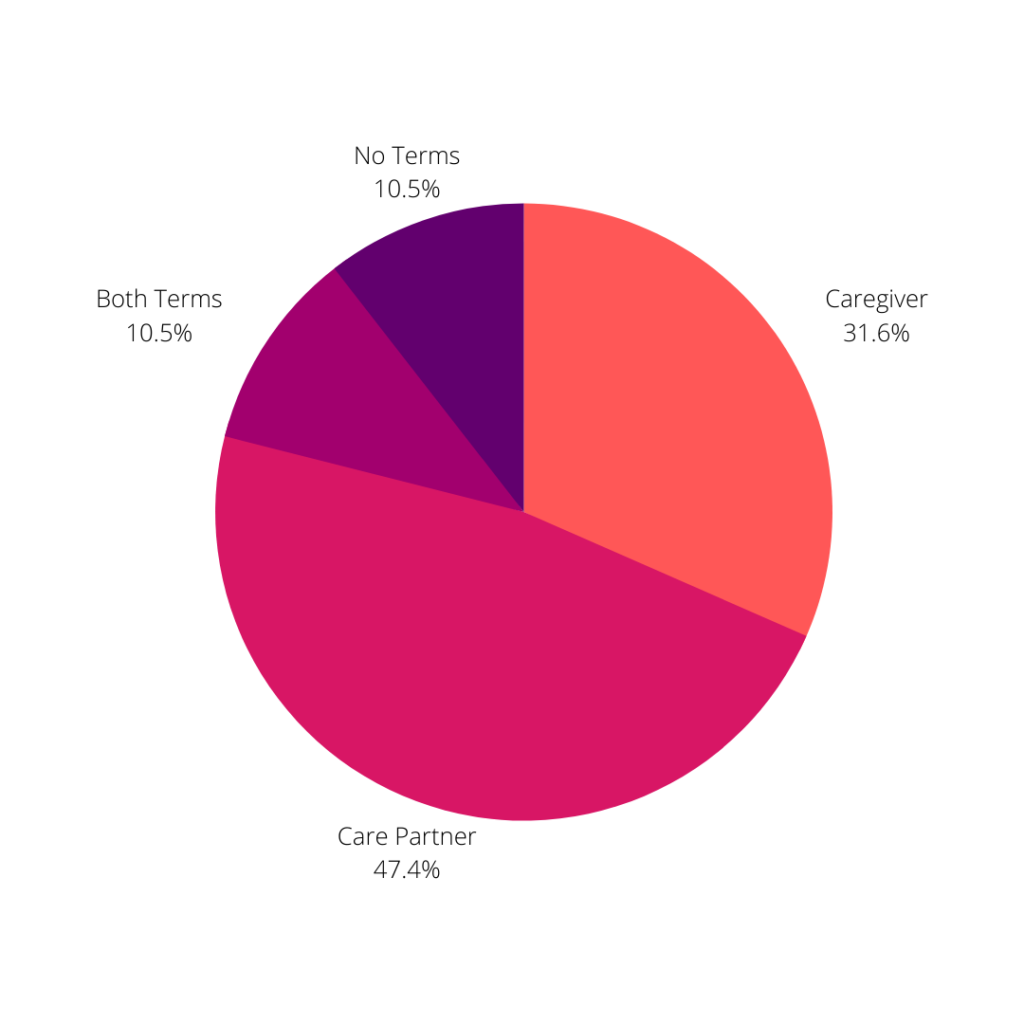
Here, care partner was favored (47.4%) over caregiver (31.6%). At the same time, a much larger percentage of the group (10.5% each) liked either both terms or no terms.
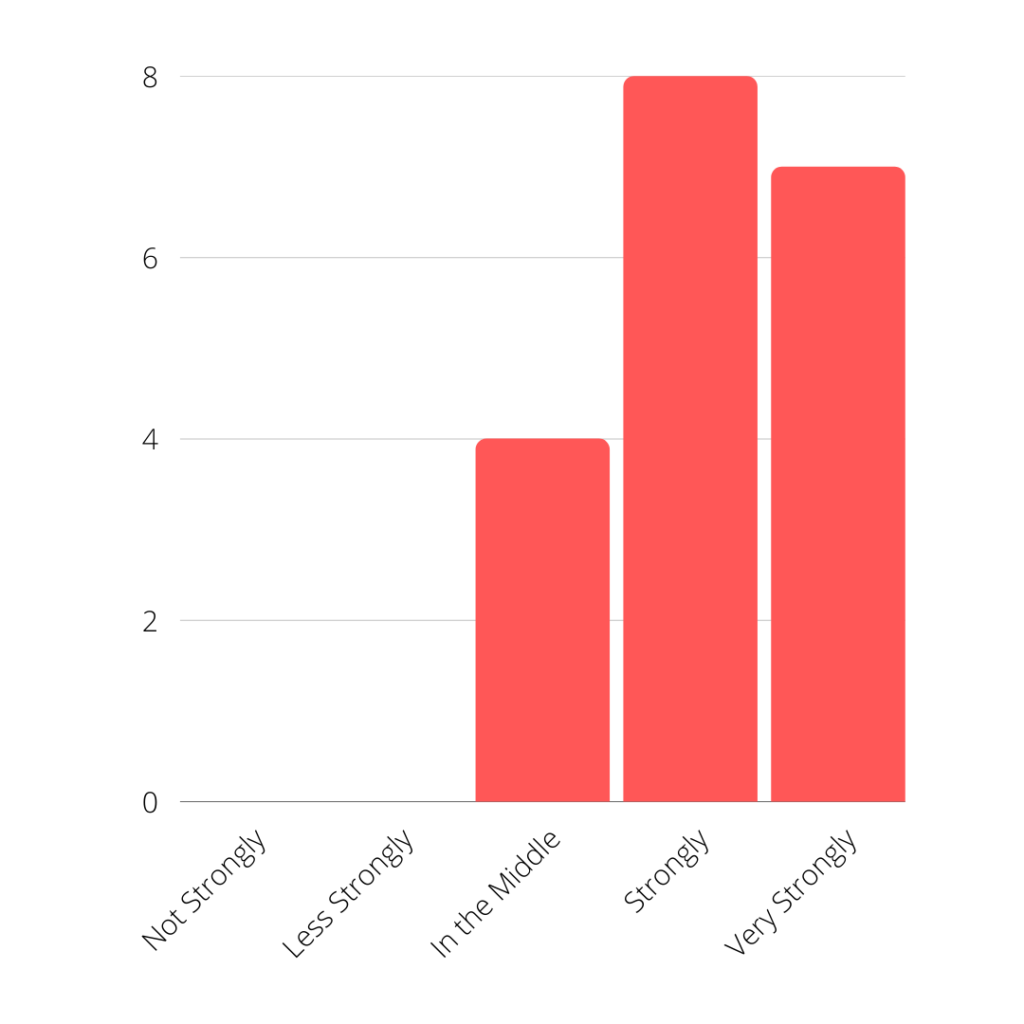
Like the general group, people with aphasia felt strongly—but not very strongly—about their opinion.
Professionals
Finally, professionals who work with people who have aphasia weighed in with their thoughts.
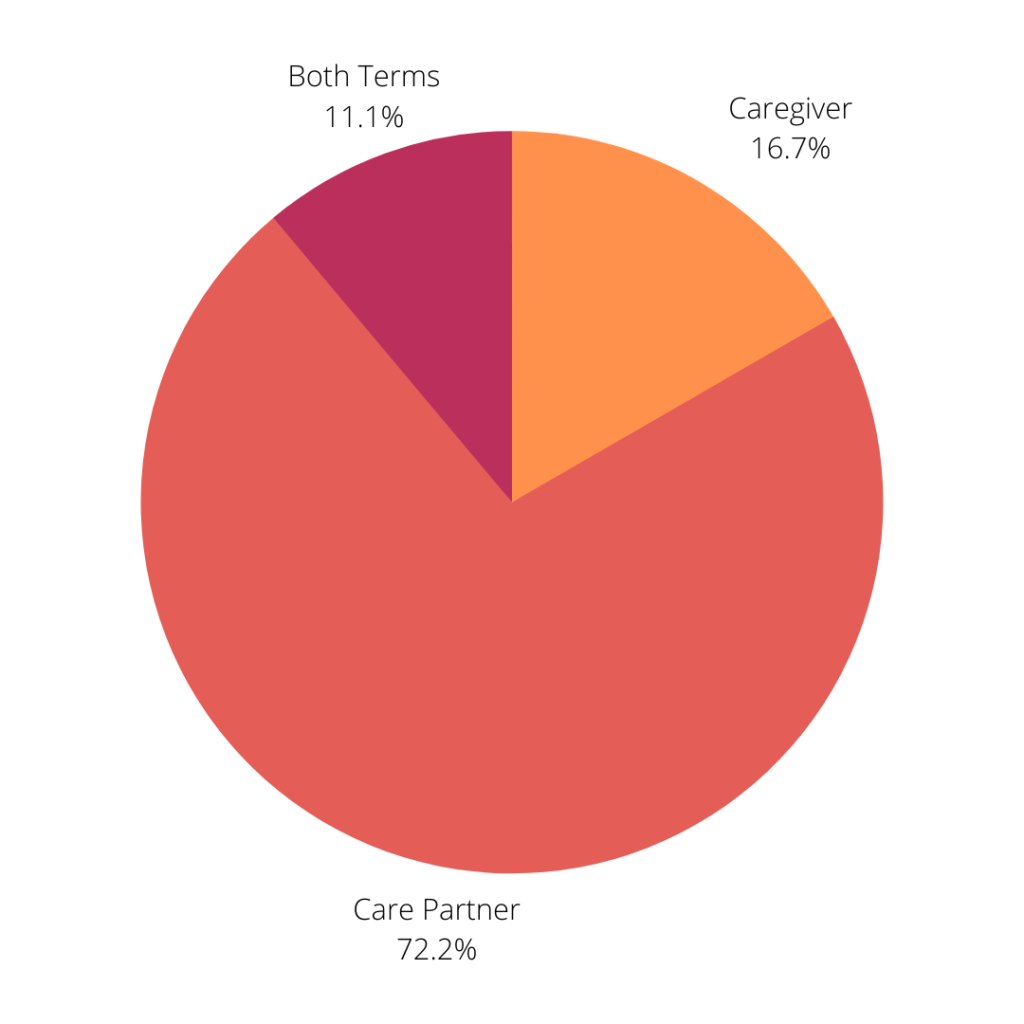
Professionals overwhelmingly drove the votes towards care partner (72%) and away from caregiver (16.7%). While 11.1% liked both terms, all professionals wanted either care partner or caregiver.
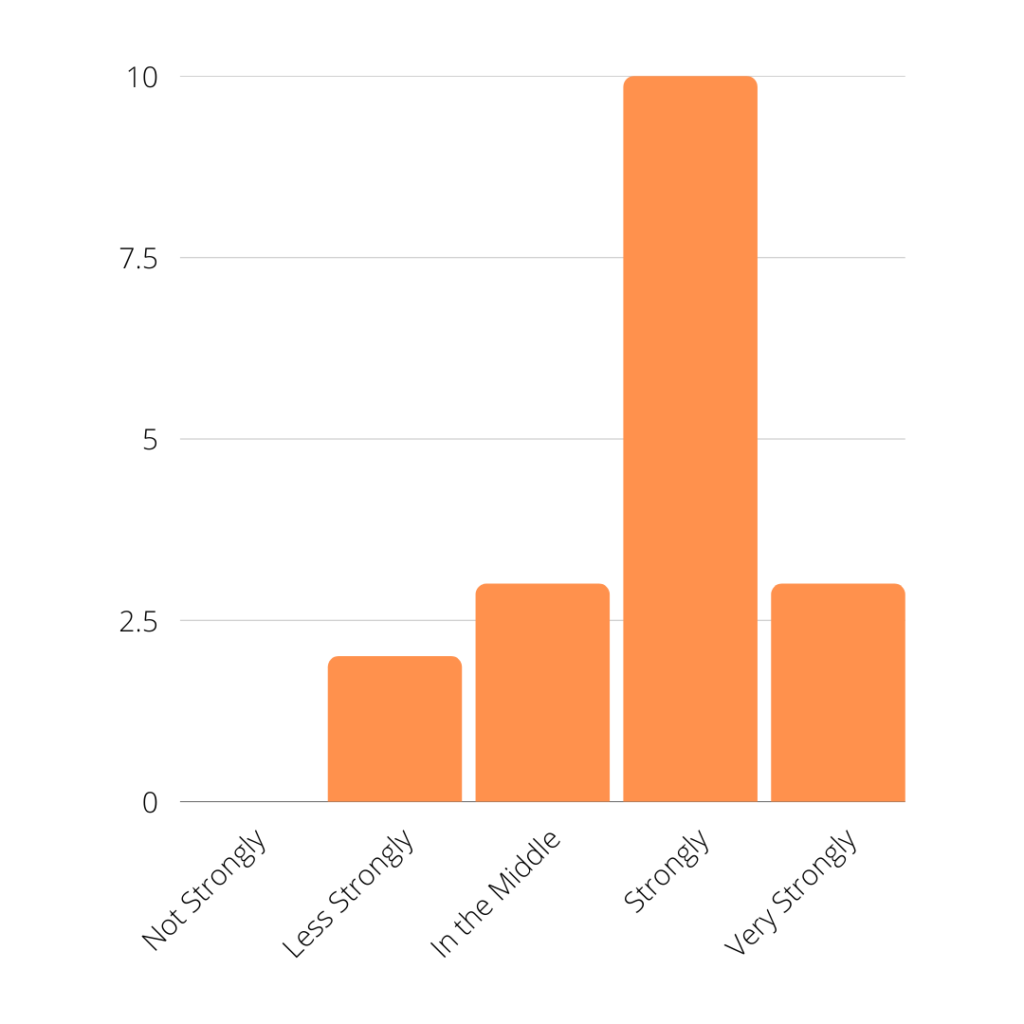
More than the general group, professionals felt strongly (and equally moderate or very strongly) in their answers.
Caregivers/Care Partners + People with Aphasia
Finally, we brought together two groups that work together: caregivers/care partners and people with aphasia.
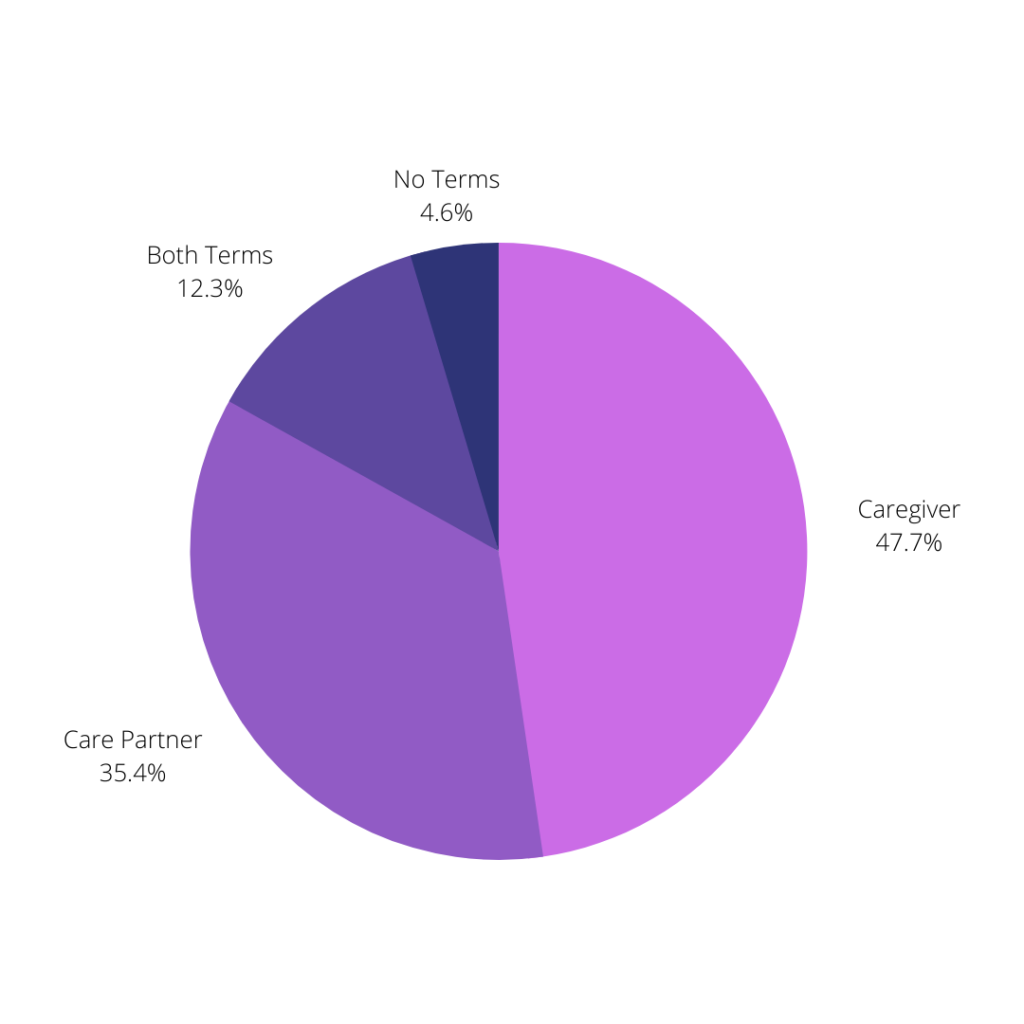
In this case, caregiver (47.7%) was favored over care partner (35.4%), with both terms (12.3%) and no terms (4.6%) trailing behind.
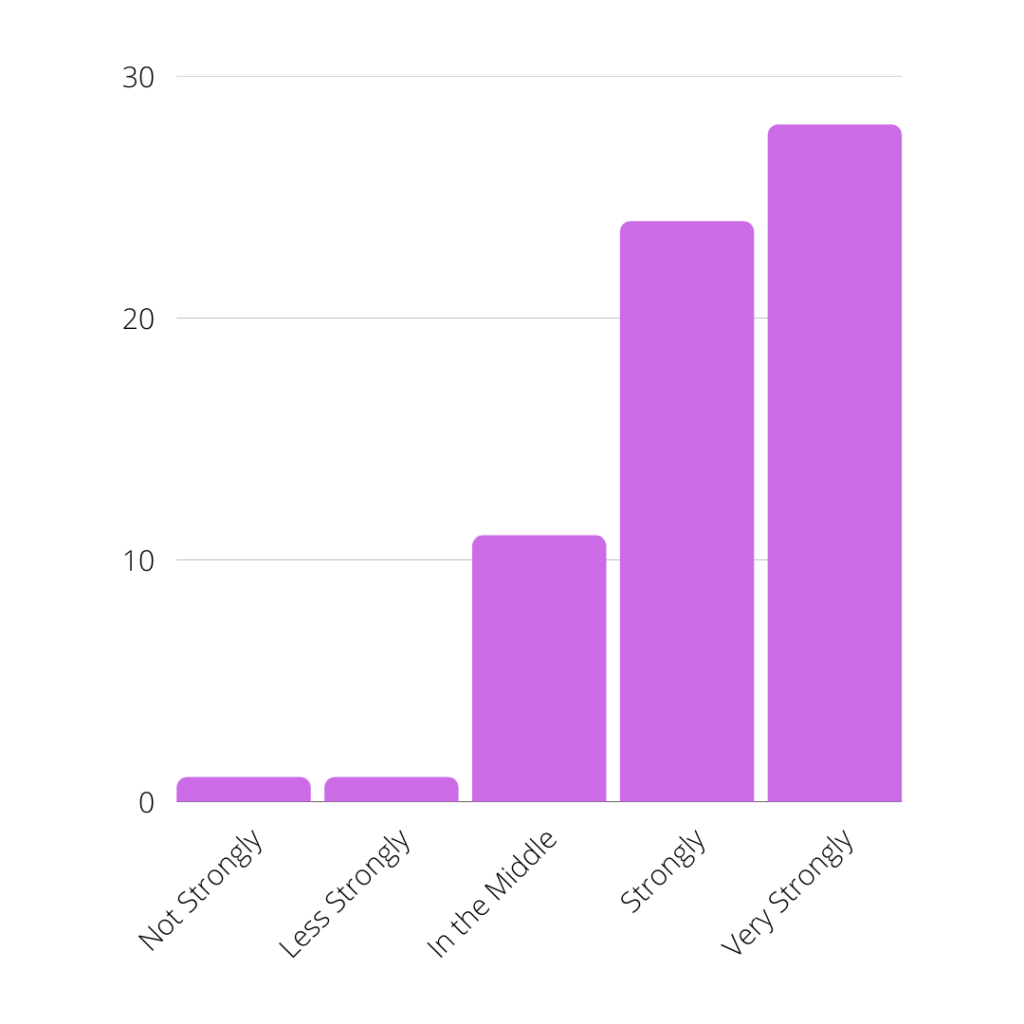
Moreover, together, this group felt very strongly that they preferred the term “caregiver” over “care partner.”
What are your thoughts on the results?



